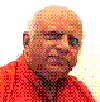The usual term for the religious movement which made its appearance in Western Europe in the sixteenth century, and which, while ostensibly aiming at an internal renewal of the Church, really led to a great revolt against it, and an abandonment of the principal Christian beliefs. We shall review the general characteristics of this movement from the following standpoints:
- Causes of the Reformation
- Original ideas and purposes of the Reformers
- Methods of spreading the Reformation
- Spread of the Reformation in the various countries
- Different forms of the Reformation
- Results and consequences of the Reformation.
The first impulse to secession was supplied by the opposition of Luther in Germany and of Zwingli in German Switzerland to the promulgation by Leo X of an indulgence for contributions towards the building of the new St. Peter's at Rome. For a long time it had been customary for the popes to grant indulgences for buildings of public utility (e.g. bridges). In such cases the true doctrine of indulgences as a remission of the punishment due to sin (not of guilt of sin) had been always upheld, and the necessary conditions (especially the obligation of a contrite confession to obtain absolution from sin) always inculcated. But the almsgiving for a good object, prescribed only as a good work supplementary to the chief conditions for the gaining of the indulgence, was often prominently emphasized. The indulgence commissaries sought to collect as much money as possible in connexion with the indulgence. Indeed, frequently since the Western Schism the spiritual needs of the people did not receive as much consideration as a motive for promulgating an indulgence, as the need of the good object by promoting which the indulgence was to be gained, and the consequent need of obtaining alms for this purpose. The war against the Turks and other crises, the erection of churches and monasteries, and numerous other causes led to the granting of indulgences in the fifteenth century. The consequent abuses were heightened by the fact that secular rulers frequently forbade the promulgation of indulgences within their territories, consenting only on condition that a portion of the receipts should be given to them. In practice, therefore, and in the public mind the promulgation of indulgences took on an economic aspect, and, as they were frequent, many came to regard them as an oppressive tax. Vainly did earnest men raise their voices against this abuse, which aroused no little bitterness against the ecclesiastical order and particularly the Papal Curia. The promulgation of indulgences for the new St. Peter's furnished Luther with an opportunity to attack indulgences in general, and this attack was the immediate occasion of the Reformation in Germany. A little later the same motive led Zwingli to put forth his erroneous teachings, thereby inaugurating the Reformation in German Switzerland. Both declared that they were attacking only the abuses of indulgences; however, they soon taught doctrine in many ways contrary to the teaching of the Church.
Jesus Christ showed us by example that we should forgive, and not sit in judgment of others. We should know history, so that we avoid similar mistakes in our own lives. That is to say, "Not to throw the Baby, with the Bath water".
When you study about this part of the history of our Faith, we should do so with love. Many of our fellow Christians, are sincerely believing what they do, and only God is the one, who will understand them, and may be more charitable to them , that those who claim to have the Truth, like the Pharisees did.
In response to this upheaval if the Catholic Church, it called an ecumenical council, in which the Reformers did not participate. By a mysterious act of God, he had a soldier named Ignatius shot in his foot and hospitalized. He later became a Saint, and was the founder of the Jesuit Order, who played an important part in the Council of Trent.
Council of Trent
The nineteenth ecumenical council opened at Trent on 13 December, 1545, and closed there on 4 December, 1563. Its main object was the definitive determination of the doctrines of the Church in answer to the heresies of the Protestants; a further object was the execution of a thorough reform of the inner life of the Church by removing the numerous abuses that had developed in it.
On 28 November, 1518, Luther had appealed from the pope to a general council because he was convinced that he would be condemned at Rome for his heretical doctrines. The Diet held at Nuremberg in 1523 demanded a "free Christian council" on German soil, and at the Diet held in the same city in 1524 a demand was made for a German national council to regulate temporarily the questions in dispute, and for a general council to settle definitely the accusations against Rome, and the religious disputes. Owing to the feeling prevalent in Germany the demand was very dangerous. Rome positively rejected the German national council, but did not absolutely object to holding a general council. Emperor Charles V forbade the national council, but notified Clement VII through his ambassadors that he considered the calling of a general council expedient and proposed the city of Trent as the place of assembly. In the years directly succeeding this, the unfortunate dispute between emperor and pope prevented any further negotiations concerning a council. Nothing was done until 1529 when the papal ambassador, Pico della Mirandola, declared at the Diet of Speyer that the pope was ready to aid the Germans in the struggle against the Turks, to urge the restoration of peace among Christian rulers, and to convoke a general council to meet the following summer. Charles and Clement VII met at Bologna in 1530, and the pope agreed to call a council, if necessary. The cardinal legate, Lorenzo Campeggio, opposed a council, convinced that the Protestants were not honest in demanding it. Still the Catholic princes of Germany, especially the dukes of Bavaria, favoured a council as the best means of overcoming the evils from which the Church was suffering; Charles never wavered in his determination to have the council held as soon as there was a period of general peace in Christendom.
The matter was also discussed at the Diet of Augsburg in 1530, when Campegio again opposed a council, while the emperor declared himself in favour of one provided the Protestants were willing to restore earlier conditions until the decision of the council. Charles's proposition met the approval of the Catholic princes, who, however, wished the assembly to meet in Germany. The emperor's letters to his ambassadors at Rome on the subject led to the discussion of the matter twice in the congregation of cardinals appointed especially for German affairs. Although opinions differed, the pope wrote to the emperor that Charles could promise the convoking of a council with his consent, provided the Protestants returned to the obedience of the Church. He proposed an Italian city, preferably Rome, as the place of assembly. The emperor, however, distrusted the pope, believing that Clement did not really desire a council. Meantime, the Protestant princes did not agree to abandon their doctrines. Clement constantly raised difficulties in regard to a council, although Charles, in accord with most of the cardinals, especially Farnese, del Monte, and Canisio, repeatedly urged upon him the calling of one as the sole means of composing the religious disputes. Meanwhile the Protestant princes refused to withdraw from the position they had taken up. Francis I, of France, sought to frustrate the convoking of the council by making impossible conditions. It was mainly his fault that the council was not held during the reign of Clement VII, for on 28 Nov., 1531, it had been unanimously agreed in a consistory that a council should be called. At Bologna in 1532, the emperor and the pope discussed the question of a council again and decided that it should meet as soon as the approval of all Christian princes had been obtained for the plan. Suitable Briefs addressed to the rulers were drawn up and legates were commissioned to go to Germany, France, and England. The answer of the French king was unsatisfactory. Both he and Henry VIII of England avoided a definitive reply, and the German Protestants rejected the conditions proposed by the pope.
The next pope, Paul III (1534-49), as Cardinal Alessandro Farnese, had always strongly favoured the convening of a council, and had, during the conclave, urged the calling of one. When, after his election, he first met the cardinals, 17 October, 1534, he spoke of the necessity of a general council, and repeated this opinion at the first consistory (13 November). He summoned distinguished prelates to Rome to discuss the matter with them. Representatives of Charles V and Ferdinand I also laboured to hasten the council. The majority of the cardinals, however, opposed the immediate calling of a council, and it was resolved to notify the princes of the papal decision to hold a church assembly. Nuncios were sent for this purpose to France, Spain, and the German king, Ferdinand. Vergerio, nuncio to Ferdinand, was also to apprise the German electors and the most distinguished of the remaining ruling princes personally of the impending proclamation of the council. He executed his commission with zeal, although he frequently met with reserve and distrust. The selection of the place of meeting was a source of much difficulty, as Rome insisted that the council should meet in an Italian city. The Protestant rulers, meeting at Smalkald in December, 1535, rejected the proposed council. In this they were supported by Kings Henry VIII and Francis I. At the same time the latter sent assurances to Rome that he considered the council as very serviceable for the extermination of heresy, carrying on, as regards the holding of a council, the double intrigue he always pursued in reference to German Protestantism. The visit of Charles V to Rome in 1536 led to a complete agreement between him and the pope concerning the council. On 2 June, Paul III published the Bull calling all patriarchs, archbishops, bishops, and abbots to assemble at Mantua on 23 May, 1537, for a general council. Cardinal legates were sent with an invitation to the council to the emperor, the King of the Romans, the King of France, while a number of other nuncios carried the invitation to the other Christian countries. The Netherlander Peter van der Vorst was sent to Germany to persuade the German ruling princes to take part. The Protestant rulers received the ambassador most ungraciously; at Smalkald they refused the invitation curtly, although in 1530 they had demanded a council. Francis I took advantage of the war that had broken out between himself and Charles in 1536 to declare the journey of the French bishops to the council impossible.| < Prev | Next > |
|---|
















